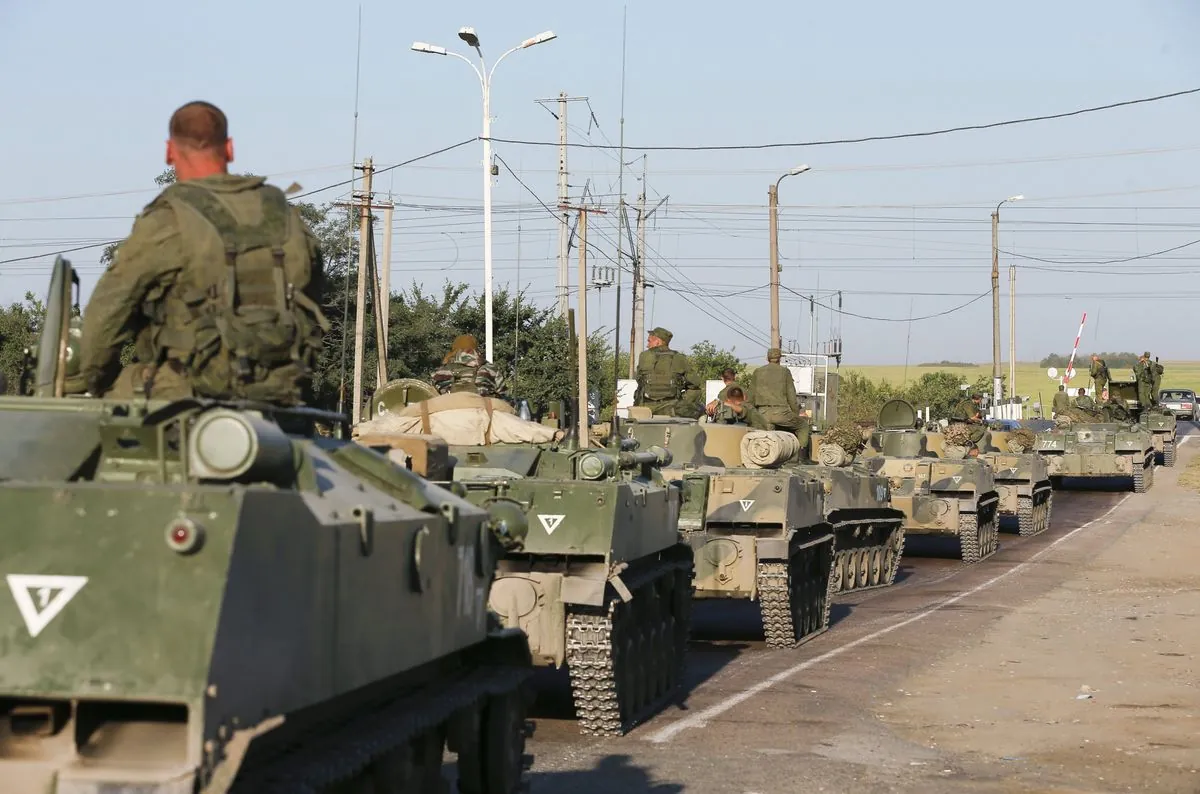In a surprising turn of events, Ukrainian forces executed an unprecedented cross-border operation into Russia's Kursk region, marking the largest such incursion since the conflict began in February 2022. This bold move has exposed vulnerabilities in Russian defenses and provided a much-needed morale boost for Ukraine.
The operation commenced on Tuesday, August 6, 2024, with Ukrainian troops swiftly overwhelming border checkpoints and penetrating up to 35 kilometers into Russian territory. The Institute for the Study of War, a Washington-based think tank, noted that the success of the raid was partly due to the low density of Russian personnel in the border areas.
Ukrainian forces employed a combination of mobile armored groups, drones, and electronic warfare tactics to outmaneuver Russian defenses. They established positions around the town of Sudzha, located just 10 kilometers from the Ukraine-Russia border, which spans 245 kilometers in the Kursk region.
The Russian military, caught off guard, struggled to mount an effective response. With the majority of their forces engaged in offensive operations in Ukraine's eastern Donetsk region, the border defenses were primarily manned by poorly trained conscripts. Russian authorities were forced to rely on air support and hastily deployed reinforcements, including special forces units and veterans from the Wagner Group.
"This is a large-scale provocation that involved indiscriminate shelling of civilian buildings, residential houses and ambulances."
The Russian government declared a federal emergency in the Kursk region, facilitating a coordinated response to the incursion. According to Russian sources, the attack resulted in civilian casualties and prompted the evacuation of thousands of residents.
Ukrainian officials have remained tight-lipped about the operation. President Volodymyr Zelenskyy, in a video address on August 8, cryptically remarked that Russia "should feel what it has done" by bringing the war to Ukrainian soil.
The raid's strategic implications are still unfolding. It may force the Kremlin to divert resources from its offensive in Donetsk, where Russian forces have been making slow but steady progress. However, sustaining a long-term presence in Kursk could prove challenging for Ukrainian forces due to vulnerable supply lines.
As the situation develops, military analysts are closely monitoring the operation's impact on the broader conflict. The raid has undoubtedly shaken Putin's narrative that Russia remains largely unaffected by the hostilities, potentially influencing public perception and future military strategies on both sides.
